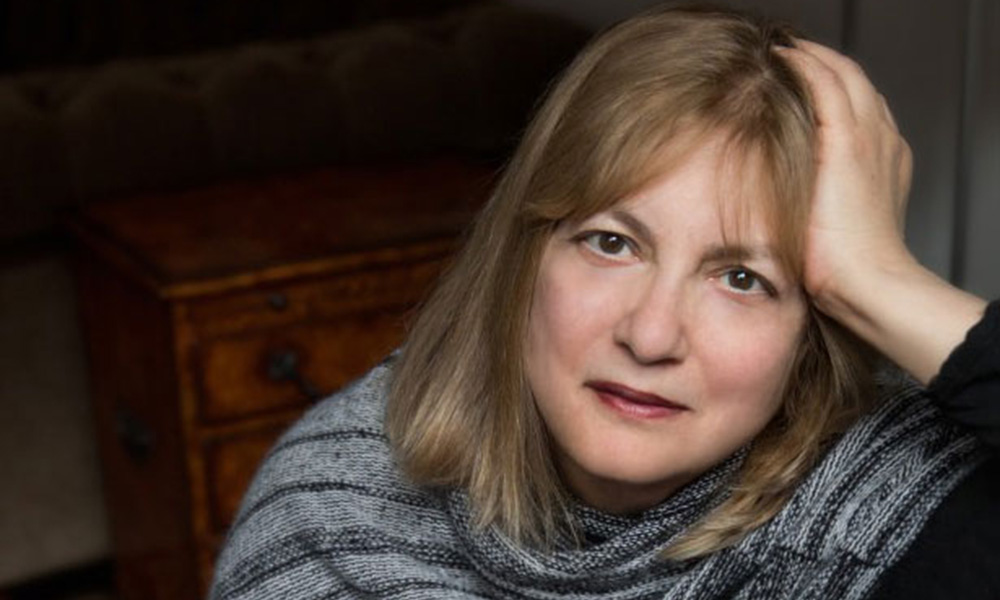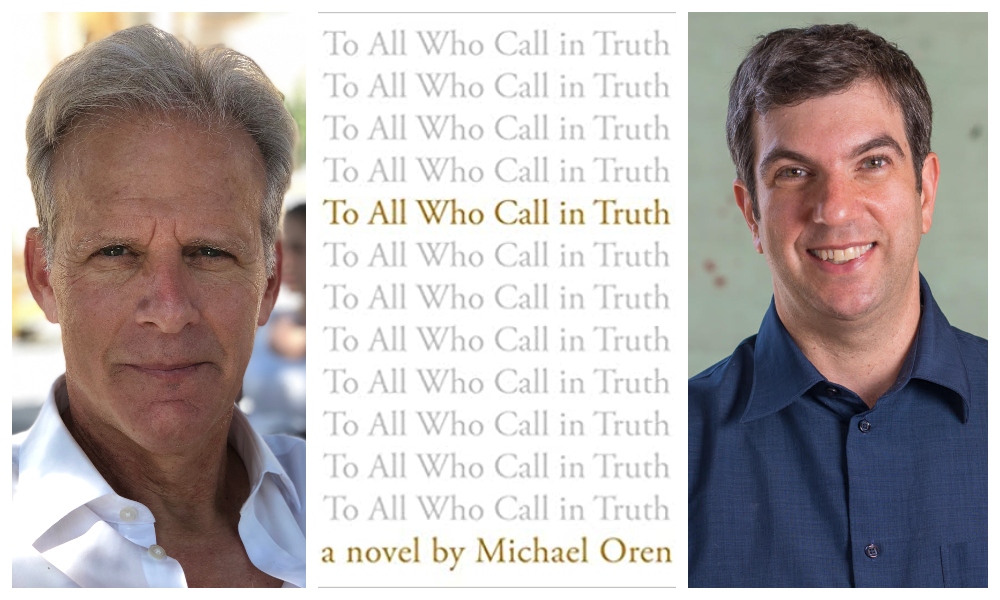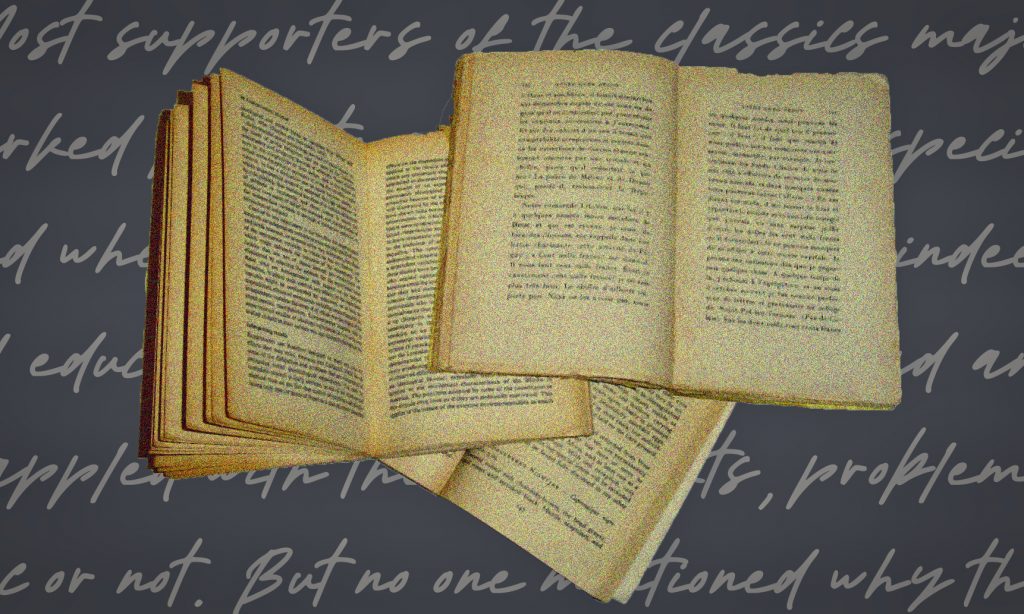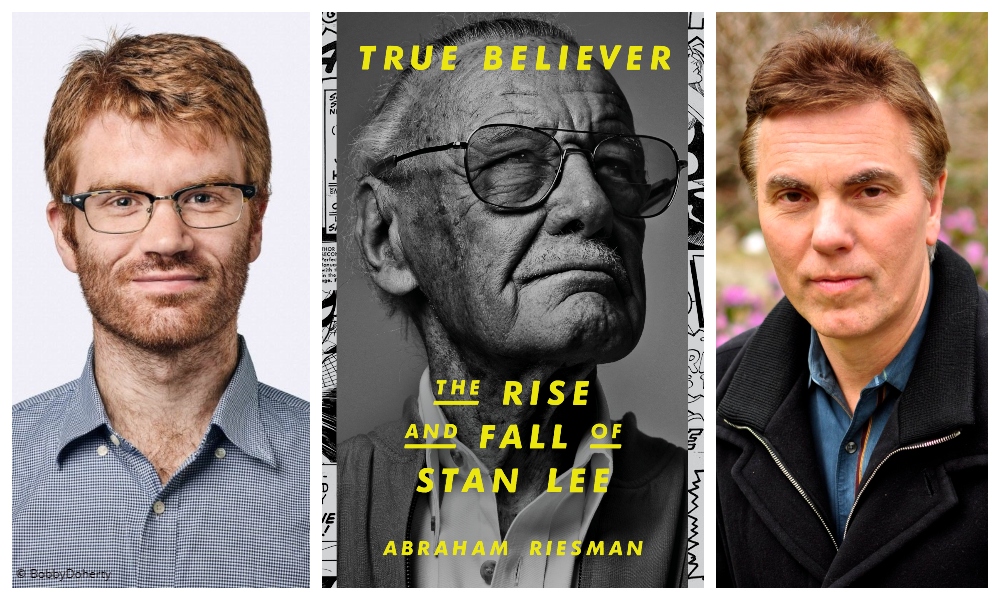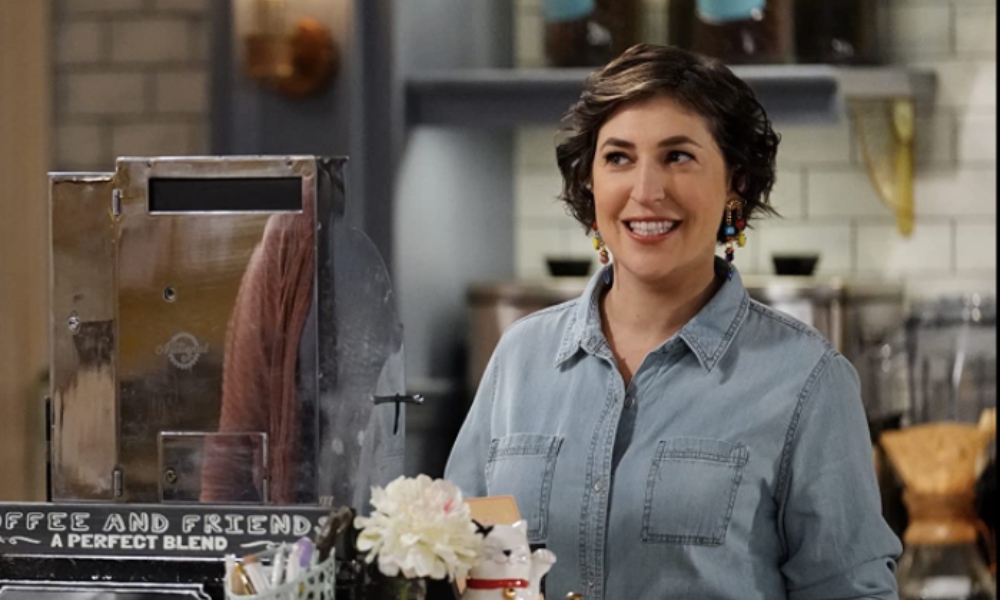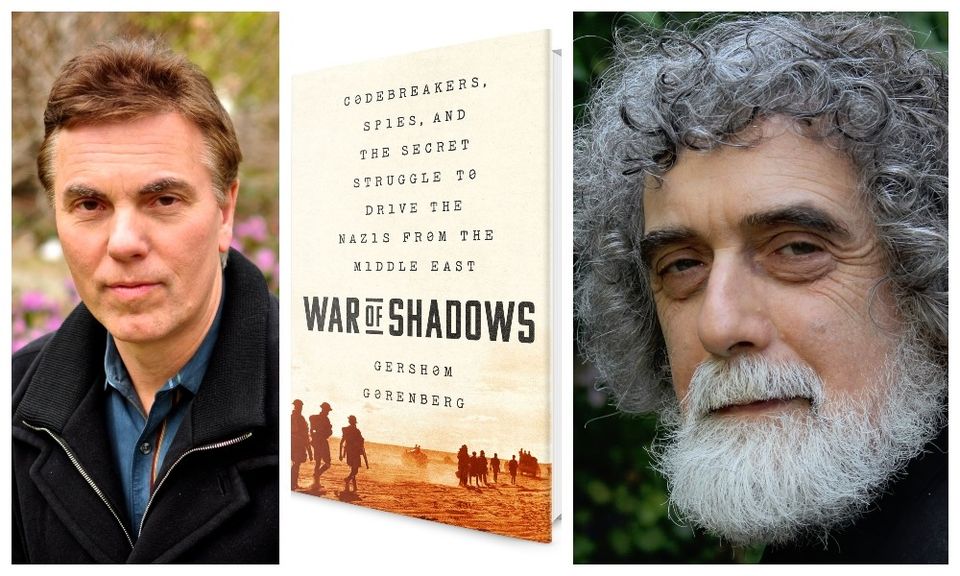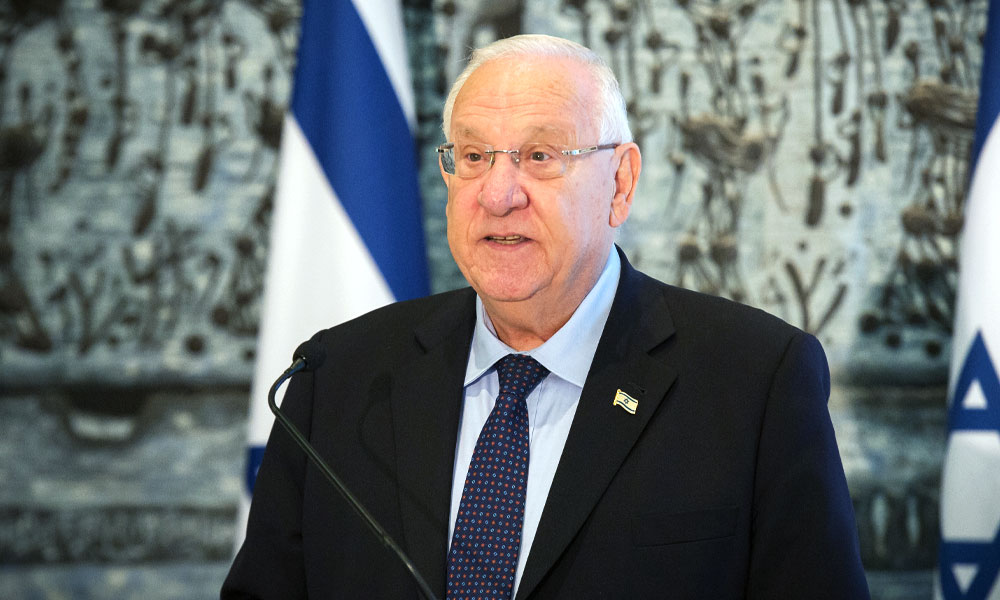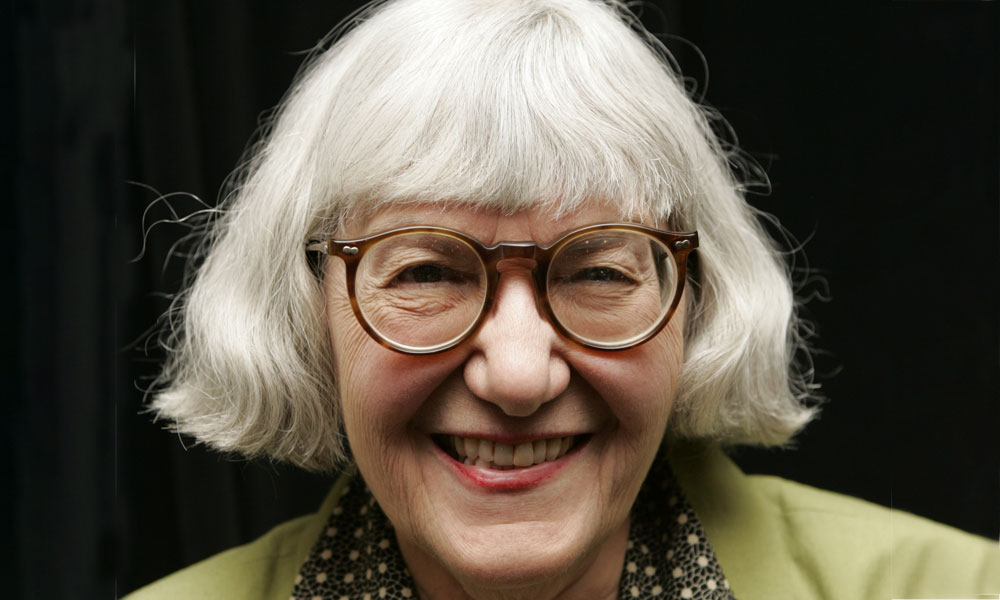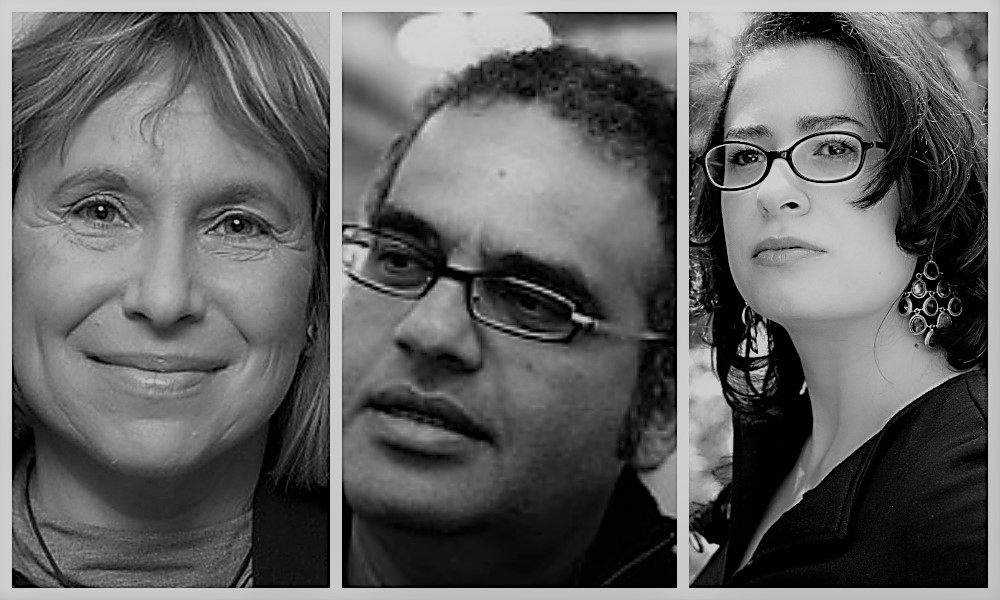Alice Hoffman’s loyal readers—of whom there are a great, great many—may be surprised to learn she’s written a Holocaust novel. The popular author of 37 previous books, including numerous bestsellers and an Oprah’s Book Club selection, is best known for her romance-filled tales of witches, spells and cold New England winters, as well as novels that evoke her own gritty working-class youth in 1950s Long Island. Her highest-profile title is probably still the 1995 Practical Magic, made into a 1998 movie starring Sandra Bullock and Nicole Kidman, about a couple of witch sisters trying to live normal lives and avoid bringing doom on the men who love them. Her Oprah book, Here on Earth (1997), is a sly retelling of Emily Bronte’s Wuthering Heights in which the Cathy character doesn’t die young but survives to pick up where her doomed romance with Heathcliff left off. (Spoiler: It’s still doomed.)
In recent years, Hoffman has dipped with increasing frequency into Jewish history. The Dovekeepers (2011) traced four women caught in the fall of Masada; Incantation (2006), written for young adult readers, was a brief, grim and gripping account of a converso family in the Inquisition in the 1400s; and The Marriage of Opposites (2015), the story of the painter Camille Pissarro and his strong-willed mother, painted a vivid and surprising picture of 19th-century Jewish life on the island of St. Thomas in the West Indies.
And yet The World That We Knew, out in September, is still a departure for the 67-year-old author. It checks all the boxes of the now-familiar Holocaust blockbuster genre: a sweeping, multicharacter plot; danger, bereavement, resistance and survival in multiple stories that snake through wartime Paris, Berlin and the safe-haven village of Le Chambon; narrow escapes; and ghastly outcomes for the brave. Since it’s an Alice Hoffman novel, there’s also a wild card, in the form of a golem—a female golem, at that—created by a rabbi’s daughter for a desperate mother who hopes that a golem can shepherd her daughter to safety.
In person, Hoffman is a cozy, almost motherly presence, speaking in gentle tones and betraying none of the spiky sensibility of her characters. As the interview proceeds, though—in a nook of a plush hotel lobby in Cambridge, Massachusetts, near where she’s lived since 1979—her eyes suddenly flash with annoyance. A business-attired man in the next nook is shouting into his cell phone, slicing across her soft diction.
“I’m sorry, I’m going to fix this,” she says, and gets up. She walks over, says two or three words to him, comes back and sits down; when we look again, he’s not just quiet—he’s disappeared completely. “I’m scary,” she says, with a slight twinkle. “There, that’s good practical magic.”
Was it a conscious choice for you to finally take on the Holocaust?
It was. I had previously avoided the Holocaust. I was actually asked to write the screenplay for Schindler’s List, before Steven Spielberg got involved. And I didn’t feel I could do it. But now I feel differently.
Why?
Partly, I felt it was my last chance to meet survivors and try to understand how they could go through something like that and continue to be in the world. That’s what I really wanted to find out. After all that has happened, can this still be the world that they knew? (The title alludes to that.) And how can they still want to be in it?
In the preface of The World That We Knew, you describe meeting a survivor who wanted you to tell her story, and you said, “No, no, I don’t do that.” But then you did. What changed?
Getting older was part of it, and seeing what’s happening around us. I really began to write this book after the 2016 election. I was working on another book, and I set it aside. I see a lot of similarities between then and now, and it’s very scary. It’s really important to keep this story in mind.
You’ve said something similar about writing Incantation (2006), your book for young adults about the tragic unmasking of a converso family during the Inquisition.
That one I wrote, really, because I realized I knew nothing about the Inquisition. I’d never learned about it in school. I recently went to Portugal. I wanted to go to different sites, and there’s no sign that anything ever happened. There was nothing left.
At the time, you also said you wrote the book partly in response to the Mel Gibson movie The Passion of the Christ, which was accused of having anti-Semitic overtones. You said that your Jewish identity was “comfortable but paranoid.” Do you still feel that way?
Is it paranoia, or is it just being smart? I certainly was raised like that, like “Always have a packed suitcase.” And my grandmother and my mother told me, “Whatever you do, as a woman, make sure you can earn your own living.” There’s some overlap.
Should Jews be paranoid right now?
We should be more paranoid than we are, if you ask me. I don’t know what’s going to happen, but I’m concerned. I was writing about children being separated from their parents during the Holocaust, and then it started to happen on our border. It is very disturbing to see the similarities. And I didn’t know until I started to do research for the book that, in France, they started by deporting refugees. There are differences, of course, but when you start separating children from their parents and losing those children, you’re dehumanizing them. Once you start objectifying and dehumanizing people, it leads to really horrible places. A lot of French people did great things, but a lot of them just watched it happen. I feel like a lot of us are watching it happen.
Do you feel you’ve been on a Jewish journey? Until recently, so many of your books were about New England.
I’ve always been working on the same themes. Writers do that. I’m always writing about love and loss and different kinds of survivorship. My first stories were from my Russian Jewish grandmother.
Were they about pogroms and persecutions?
No. Mostly fairy tales about trying to escape from her small village—at least, they all seemed like fairy tales to me, because they seemed so highly unbelievable. And my grandfather was a Yiddish writer, not particularly successful. He was published in The Forward. He died young and his friends put his work together in a book, and I found it at the Yiddish Book Center at Hampshire College and had parts of it translated. He wrote an essay about his political conversion. He was eight years old, in the Ukraine, on a summer day, and he was working in a factory, and he heard children playing. And he went outside and saw the factory owner’s children playing in a lake. And at that moment, he said, everything changed for him. He saw it all, his whole political future. He became a socialist. To hear his voice in the piece was very interesting. It influenced me, somewhere in the back of my mind. I wrote a novel about the unions in New York and the Triangle Factory fire (The Museum of Extraordinary Things, 2014).
Did you have any Jewish practice growing up?
No, none. Just cultural. I was near New York, so everyone is Jewish, and you don’t have to.
You’ve said your books are “a handbook on how to deal with sorrow.” Do you feel you’re doing that with the huge sorrow of the Holocaust?
I do feel that. I also felt it when I wrote The Dovekeepers, about the fall of Masada, such a crazy choice for me, because I knew nothing, I mean, really nothing about that subject.
How did that happen?
I have family in Israel. I’ve spent time there. I went to Masada with an archaeologist, and I didn’t expect to feel anything, but I felt something really intense. It’s a spiritual place, and I’m not a spiritual person, but I felt I could hear the voices of the people who had been there. And then I saw a sign that said there had been survivors, which I had never heard before. So then I got interested. That was really a huge undertaking for me, in terms of both research and imagination. I felt I was telling the stories of women who never got to tell their own stories. The last time I went back, the head of research at Masada said to me that he had never thought about the women who had been up there. And really, who did?
Do you feel that Jewish tradition has a lot of holes where women’s stories should be?
Every tradition does. That’s what interested me too with my book about the painter Camille Pissarro’s mother. I went to an exhibition of Pissarro in Massachusetts, and it said something about his being Jewish—which I didn’t know—and then it said his mother had created the biggest scandal that ever happened in St. Thomas. And then I thought, “Oh, I’m interested in her, not him.”
Do you feel you’re doing midrash, reclaiming women’s voices, the way Anita Diamant did with The Red Tent?
Maybe. I love that book and I love her. I feel like we’re all silenced, don’t you? When I was in school, we didn’t read any women writers who weren’t either British or dead. When I went to graduate school and read Grace Paley, that just blew the top of my head off. Reading her was huge. I didn’t know what I could write as a woman that mattered—all the big books were about men at war. When I read Grace Paley, I realized that I could just write about being human.
Did raising your sons have anything to do with getting closer to Jewish tradition?
No, it wasn’t that. I don’t know what it was. Maybe because my grandmother is no longer here, and it was a way to feel closer to her.
Some of the characters in your new novel are very observant; there are a lot of blessings and religious rituals.
Well, that’s not me, personally. I wish I was a person who had a religious practice and a faith, but I’m not. I just have faith in literature.
Why do you write so much about witches and magic?
As a reader, I always wanted to escape. And as a writer, I feel the same exact way. For me, literature and magic are kind of melded together. I never really understood calling magical realism a new technique, because it’s been around forever. It’s connected with women and fairy tales and the stories that grandmothers tell grandchildren. For me, it’s a literary tradition, maybe a women’s literary tradition, in which it just seems totally normal for magic to happen.
And there’s something else. When I did research about the Inquisition, I found that the only European countries where there were no witch trials were Spain and Portugal. I think the persecution of the Jews filled the same purpose.
So the witches in your books are really Jews?
No, they’re not Jews, but they’re people without power—women, persecuted because they don’t have power. As a little girl, I was attracted to stories about witches because they were the only female characters with power.
Is that why your Holocaust story needed a golem? And a female golem, at that?
I did a lot of research into golems, and the only female golems anyone mentioned were used either for sex or for housecleaning. But I was also writing about what it’s like to lose your children, what it’s like to lose your mother. It just came to me that way because the people I talked to were mostly children who were sent away and never saw their parents again. Those were the ones who survived. And I thought, well, if you were a mother and you wanted to put your child in the care of a golem, it certainly wouldn’t be a male golem. You would go to another woman.
I feel she’s a unique character. In the traditional Yiddish folktales and the Isaac Bashevis Singer folktales, the golem is very much an “it,” just a creature.
Did you have qualms about putting magic in a book about the Holocaust?
I thought about that a lot, because I felt I couldn’t write this book in a realistic fashion. One, because I’m not a historian, I’ll never know the whole story. But beyond that, I felt I couldn’t get to the heart of the matter, really, by telling just the facts. I had to find another way into the story. I don’t think I could have written it any other way. I tried, and it just didn’t work.
But also, fairy tales and myths are a way to explain what is completely illogical and makes no sense. And the Holocaust really doesn’t make sense. You can’t explain why people did what they did. You can’t explain why some people lived and some people died.
I asked a great scholar from Harvard, Susan Suleiman, to read the book and vet it. And she says in one of her own books, “History is luck.” When people told me about their experiences, it was like that: The train turned around, the train didn’t go, their mother sent them here and not there. It’s just luck. Fairy tales and myths try to give some sort of explanation for that.
Were you worried that the novel would make the Holocaust seem to make sense?
No, I was worried that people who had lived through it would feel it wasn’t the story. I asked another French historian, who’s involved with an organization that investigates mass graves, to read it, and he said it surprised him, but he was very positive. So I felt a lot of relief.
The story of the golem is very life-affirming. Was it a challenge to set that against a Holocaust backdrop?
That was the question. How do you continue to live in a world that’s falling apart and cruel? I think the answer really is life-affirming.
You got that message from the survivors you knew?
And from writing the book. I think I know more as a writer than I know as a person. I always feel like I write the book for myself, so as to find out the answer.
So, what did you find out?
Live. That’s the answer.

